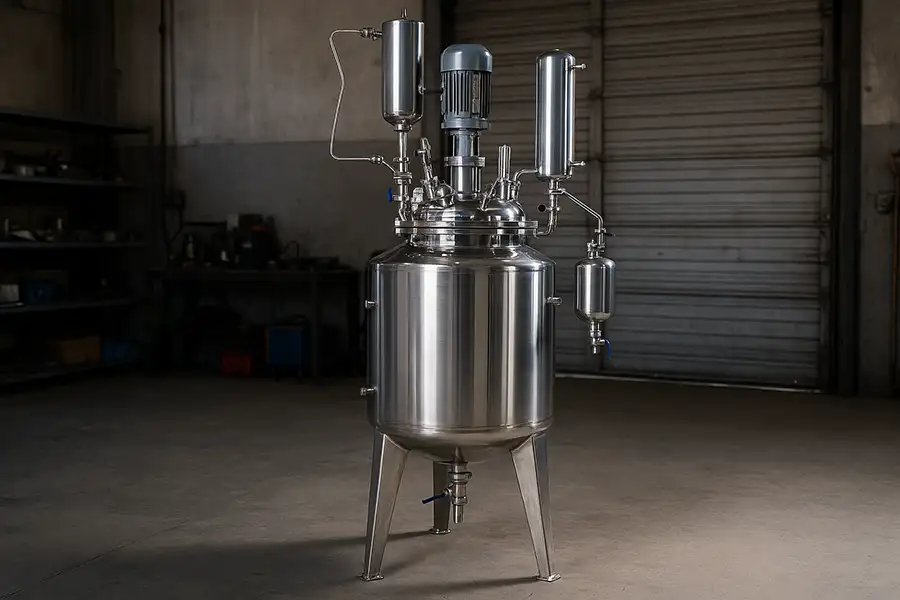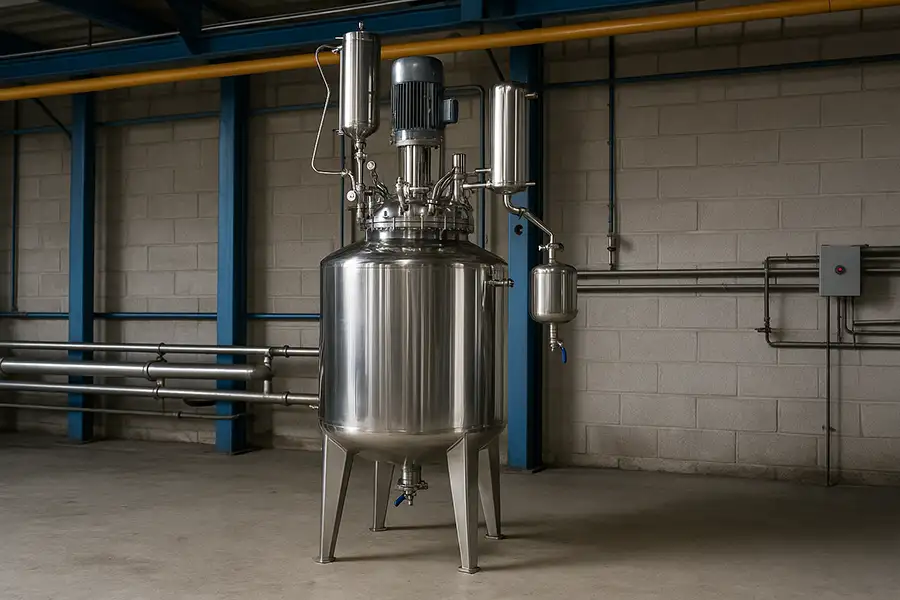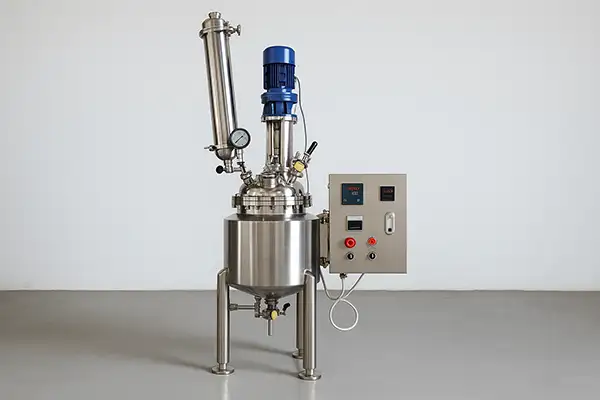Stainless Steel Reactors: Complete Industrial Guide
In the chemical, pharmaceutical, and food industries, the stainless steel reactor is one of the most essential pieces of equipment. If you're searching for a stainless steel reactor for sale, understanding its features, applications and benefits will help you make the right decision.

What is a Stainless Steel Reactor?
A stainless steel reactor is a closed vessel designed for chemical reactions under controlled temperature and pressure conditions. It is widely used in the production of pharmaceuticals, polymers, specialty chemicals, and food products.
The stainless steel material ensures high corrosion resistance, durability, and compliance with strict industry standards.
Why is stainless steel preferred over other materials?
Stainless steel offers excellent corrosion resistance, high strength, and the ability to withstand both high and low temperatures. Research shows stainless steel reactors can last over 20 years with proper maintenance, making them a cost-effective long-term solution.
Applications Across Industries
Pharmaceutical manufacturing - Precise medication synthesis
Food and beverage processing - Safe ingredient production
Polymer and plastics production - Advanced material creation
Petrochemical processing - Oil refining solutions
Specialty chemicals - Custom compound development
Water treatment - Advanced purification systems

Key Benefits & Advantages
Superior Durability
Resistant to wear and tear even in demanding industrial environments
Corrosion Resistance
Ideal for handling aggressive chemicals and acidic materials
Temperature Tolerance
Suitable for cryogenic to high-temperature processes
Easy Cleaning
Meets strict GMP standards for pharmaceutical and food industries
Selecting the Right Reactor
When evaluating stainless steel reactors for sale, consider these critical factors:
Capacity matching - Scale from lab to industrial production
Pressure rating - High-pressure or atmospheric designs
Jacket system - Temperature control requirements
Agitation method - Mixing precision and intensity
Material grade - 304, 316L or special alloys
Batch vs Continuous Chemical Reactors
Batch reactors process materials in specific production runs, ideal for smaller-scale operations where consistency between batches is critical. Continuous reactors maintain a constant flow of materials for large-volume, consistent output manufacturing.
Learn more about stainless steel batch reactors.
Automated Control Systems
Modern stainless steel reactors feature sophisticated automation:
Precision digital temperature control
Pressure monitoring systems
Automated mixing profiles
Real-time reaction monitoring
Remote operation capabilities
Integrated data logging

Industry Specifications
Standard models and configurations available:
| Model | Capacity (L) | Pressure Rating | Temperature Range | Material |
|---|---|---|---|---|
| SSR-50 | 50 | 10 bar | -20°C to 200°C | Stainless Steel 316L |
| SSR-200 | 200 | 15 bar | -30°C to 250°C | Stainless Steel 316L |
| SSR-500 | 500 | 20 bar | -40°C to 300°C | Hastelloy |
| SSR-1000 | 1000 | 25 bar | -50°C to 300°C | Duplex Super Stainless |
Market Growth & Future Outlook
The global chemical reactor market is projected to grow at 5.3% CAGR through 2028, driven by pharmaceutical and specialty chemical demand. AI implementation in industrial automation will transform reactor monitoring and maintenance by 2030.
Are You Considering a Stainless Steel Reactor?
Get personalized guidance on selecting the perfect solution for your industrial process.
Request Free ConsultationComparative Analysis
Understanding equipment alternatives:
| Feature | Stainless Steel Reactor | Glass Reactor | Ceramic Reactor |
|---|---|---|---|
| Durability | Excellent | Good | Very Good |
| Visibility | Limited | Excellent | Limited |
| Cost Efficiency | High (long-term) | Medium | Lower |
| Chemical Resistance | Excellent | Excellent | Excellent |
| Temperature Range | -70-300°C | -100-250°C | -200-500°C |
Concluding Insights
Finding the right stainless steel reactor for sale requires balancing your process needs, budget, and long-term operational goals. By carefully considering capacity requirements, pressure ratings, mixing methods, and automation capabilities, you can select equipment that delivers efficient and reliable performance for years.
For detailed information on specific models, explore our catalog of stainless steel reactors and customized chemical solutions.
